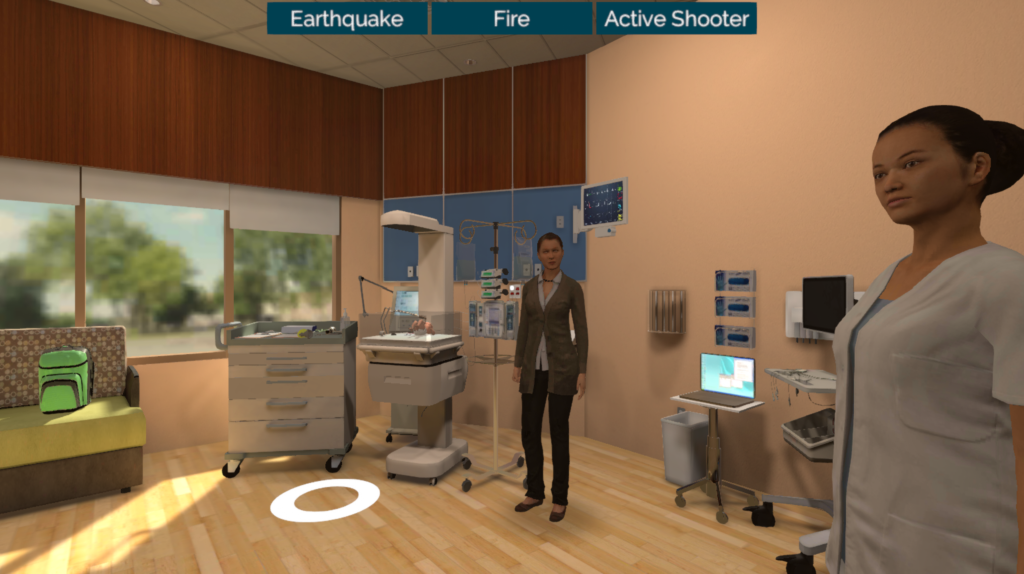
IDIA Lab partnered with physicians at the Seattle Children’s Hospital to develop a virtual simulator to train staff in the case of various disasters.
The EVAC+ Virtual Disaster Simulator leverages virtual reality to train health care providers to react quickly and effectively to unexpected events that threaten patient safety. It was developed after pilot live simulations, user focus groups, surveys, and a successful pilot of the initial EVAC system. After the need for more communication opportunities and variations in disasters responses was identified in the pilot, EVAC+ was created. EVAC+ leverages the same ability to prepare patient equipment for an evacuation but with significantly more features allowing for interacting with hospital room, other staff, and family members. Upon entering the EVAC+ environment providers are oriented to the virtual space, including navigation, interacting with objects, and how to interact verbally with non-player characters.
Once they are comfortable with the space they can choose from a menu of disasters to experience, including earthquakes, fire, and an active shooter event. Each simulation has unique objectives around patient protection, equipment packing, and communication with other staff and families. Learners practice how they would provide a status update using the SBAR technique to their charge nurse, use closed loop communication, and respond to anxious family members.
Pre-determined safety behaviors, such as stopping and resolving a mission critical issue, are prompted and performance recorded for feedback. After each scenario the user is guided through a self-debriefing on how well they performed on key disaster and communication behaviors. Information on how they managed and packed medical equipment is presented along with evidence-based information on how experts would recommend managing equipment. Users can choose to repeat any scenario to practice or refine their responses and can explore the scenarios in any order.
The Unity3D environment is accessible on web-browsers and head-mounted VR systems. Amazon Web Services (AWS) supports voice communication and real-time analytics. The EVAC+ system fills a unique need for accessible, interactive, sustainable disaster training for healthcare providers.